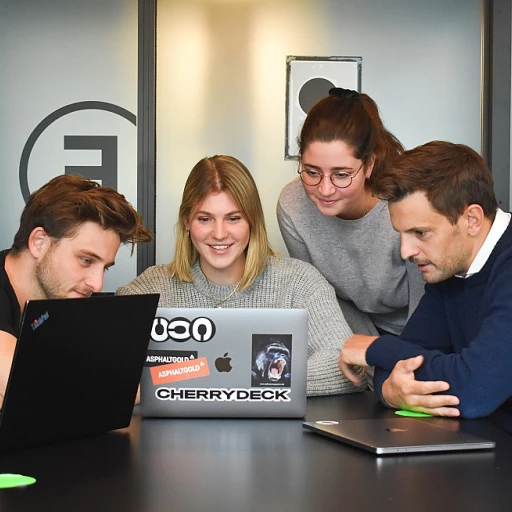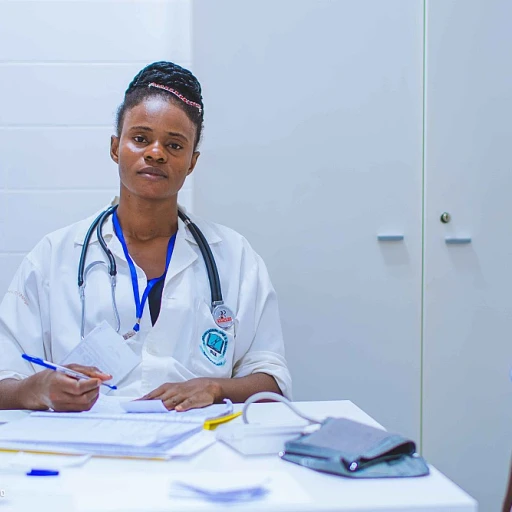Introduction to the Dreyfus Skill Acquisition Model
Unlocking the Depths of the Model
When venturing into the role of a Chief Human Resources Officer (CHRO), understanding the stages of skill development can be crucial. The Dreyfus Skill Acquisition Model provides a framework to map the journey from a novice to an expert, revealing how skills and knowledge evolve over time. This model, initially conceived to comprehend skills in medicine, is invaluable for various domains, including human resources.
The model outlines five distinct stages, starting with the 'Novice' stage, where individuals begin with limited experience. Progressing through these stages involves moving from adherence to context-free rules to developing a profound understanding and adaptability in the face of dynamic situations. The skill advancement journey is accentuated by experiences that hone problem solving and decision making capabilities.
Each stage signifies a heightened level of expertise and is characterized by different experiences and capabilities. The initial stages emphasize rule-following and basic problem solving, while advanced stages enhance a person's ability to tackle complex problems and act strategically. This transformation is essential for aspiring CHROs seeking to influence and lead effectively within their organizations.
To successfully navigate these stages of skill acquisition, one must not only accumulate experience but also refine their capacity to apply strategic HR solutions effectively. For those planning their career trajectory in human resources, comprehending the Dreyfus Model can be a fundamental step in understanding how to cultivate leadership skills.
The Novice Stage: Starting Out in Human Resources
Embarking on the HR Journey
In the initial phase of skill development, individuals at the novice stage are characterized by their reliance on established rules and procedures. These new entrants to the field of human resources often exhibit a limited understanding of the broader context, focusing primarily on learning basic tasks and gaining essential HR knowledge. The Dreyfus Model labels this as the "context-free" stage, where novices are typically guided by concrete steps and instructions.
Novices in HR may start their careers by engaging with straightforward tasks such as recruitment processes, onboarding new team members, or managing employee records. These early-stage tasks serve as the foundational blocks of experience and knowledge, helping to initiate the process of skills acquisition. Although their problem-solving skills may initially be limited to following prescribed procedures, novices gradually begin to recognize patterns and rules within their work environment.
During this important phase, novices also develop crucial decision-making and learning skills by observing and interacting with more experienced team members. This period can be both challenging and rewarding, as individuals strive to build their confidence and competence in a professional setting.
For those seeking to enhance their skills and smoothly transition through these stages, exploring resources like the
Agility Writer Power-Up Guide can offer valuable insights into effectively navigating the early stages of the HR career path.
Advanced Beginner: Gaining Experience in HR
Gaining Practical Experience in Human Resources
In the realm of human resources, the journey of skill acquisition mirrors the evolving stages outlined in the Dreyfus Model. As individuals progress beyond the novice stage, they enter a phase ripe with opportunity for growth—the advanced beginner realm. Here, professionals start accumulating practical experience that begins to shape their career trajectory.
As an advanced beginner, the HR professional starts to significantly improve their problem-solving skills. This stage is marked by the ability to recognize recurring patterns and formulate basic strategies for addressing HR issues. While still relying on established rules and procedures, team members in this stage begin to develop an awareness of the broader context within which they operate.
Advanced beginners are not yet expected to master complex decision making but are encouraged to gather experiences that enhance their understanding of HR processes. Participation in diverse HR projects allows for skill development across different facets of the field, applying principles learned in real-world scenarios. This is a critical period for honing clinical skills in resolving workplace issues, as team members often work closely with mentors or more experienced colleagues to navigate challenges.
Exposure to live cases and active engagement in problem-solving scenarios will enable an advanced beginner to transition effectively to later stages, increasing their performance and efficiency in dealing with more intricate HR practices. Developing these skills is essential, as they are foundational for emerging into more competent HR roles.
To further enhance this stage of learning and development, HR professionals can benefit from resources tailored to enhancing leadership skills and addressing workplace challenges. For a deeper dive into such development opportunities, consider exploring
enhancing leadership and addressing workplace challenges.
Competence: Building a Solid HR Foundation
Solid HR Foundations: Developing Competence
Reaching the competence stage in the Dreyfus Model signifies a pivotal moment in a Chief Human Resources Officer's journey. At this phase, individuals transition from merely applying rules and procedures to actively developing a robust understanding of human resources functions.
This stage is characterized by significant growth in problem solving and decision making abilities. As team members begin to recognize patterns within HR scenarios, their ability to effectively address issues improves markedly. This skill acquisition isn't merely about following sets of instructions; it involves recognizing nuances in context and applying informed judgement.
Gaining competence requires a commitment to learning and applying sophisticated HR practices. Practical experience becomes invaluable as it enables the integration of theoretical knowledge with real-world application. Additionally, continued exposure to diverse HR challenges fosters the development of clinical skills necessary for strategic contribution.
Throughout this learning process, individuals must balance maintaining foundational skills with enhancing their strategic capabilities. This phase often involves preparing for more advanced responsibilities, including managing complex issues and leading HR initiatives that require a depth of understanding and expertise. As team members continue to grow, they become proficient in navigating HR landscapes with increased confidence and autonomy.
The journey through the competence stage is not just about acquiring knowledge; it’s about practicing and refining the art of HR leadership. It lays the groundwork for subsequent stages, where the strategic and expert elements of the CHRO role are further explored, setting the path toward a greater mastery within the domain.
Proficiency: Becoming a Strategic HR Leader
Strategic Vision: Elevating HR Leadership
In the proficiency stage of the Dreyfus skill acquisition model, individuals transition from competency to a level where they can take on a more strategic role within human resources. As HR leaders, they are equipped with a keen understanding of the organization’s needs and can influence its direction effectively. This stage is about transcending the basic problem-solving skills acquired earlier and utilizing them to create a significant impact on the organization.
The proficiency stage involves a deeper understanding and internalization of rules and procedures that initially seemed restrictive. Now, these become a framework within which expert-level decision making occurs. HR professionals begin to utilize their insight to evaluate complex situations and develop strategic initiatives rather than focusing on basic rule-following or straightforward tasks. They move from a stage where their actions are context-free to a point where decisions are informed by specific organizational contexts.
Key elements of this stage include:
- Leadership Development: Moving beyond foundational HR tasks, proficient leaders are seen as strategic partners in the organization. They engage in skill development not just for themselves, but for their team members, enabling better overall performance.
- Advanced Problem Solving: Decision making at this stage incorporates a broad understanding of diverse organizational issues, allowing CHROs to anticipate challenges and develop proactive solutions.
- Increased Influence: At this point, the CHRO uses their expertise to influence organizational culture and strategy, leveraging their knowledge of HR to promote growth and development at all levels.
As proficiency progresses, HR leaders utilize their advanced beginner learning, which includes diverse experiences and knowledge accumulated through years of practice. They begin to function independently, no longer relying solely on established procedures, but integrating more intuitive, scenario-based problem solving.
This stage is marked by a scholar-like approach to HR management, where professionals continuously seek new knowledge and insights, reminiscent of practices seen in fields like medicine. By synthesizing theoretical knowledge and practical experience, they ensure robust support for organization's goals.
Understanding the Dreyfus model stages in the context of HR allows for a structured path towards becoming an expert, building upon each stage of development. This progression ensures not only individual career advancement but also a substantial contribution to organizational success.
Expertise: Mastering the Role of a CHRO
Reaching the Pinnacle in HR Leadership
In the quest to become a master in the field of Human Resources, the Expertise stage of the Dreyfus Skill Acquisition Model marks the pinnacle of this journey. By the time professionals reach this level, they are well-versed in the intricacies of HR and possess the capacity to solve complex problems with precision and efficiency.
As experts, Chief Human Resources Officers (CHROs) operate on a level that goes beyond simply following rules and procedures. Unlike the Novice and Advanced Beginner stages, where individuals rely heavily on context-free guidelines, experts use their accumulated experience to guide intuitive decision-making and strategic thinking in real-time scenarios. Their mastery incorporates an advanced understanding of HR management, combining practical knowledge with a deep grasp of theoretical models.
This stage signifies not only the culmination of years of skill development but also the transformation of advanced theoretical knowledge into expert performance. CHROs in this stage effectively leverage their problem-solving skills and comprehensive understanding of the organization to drive performance improvements and lead HR development in alignment with organizational goals.
Moreover, experts exhibit a unique ability to adapt and evolve their skills in response to new challenges. Their proficiency in skill acquisition allows them to stay at the forefront of industry trends and innovations, maintaining agility in a fast-changing environment. They serve as mentors to team members, fostering a culture of continuous learning and development, reflecting the skill level they have attained.
In essence, reaching the Expert stage is characterized by an organic and intricate blend of intuition and analytical prowess, which transforms CHROs into strategic leaders who effectively influence organizational success. This highest stage in the Dreyfus model showcases how expertise in HR is not merely acquired but continuously developed through years of immersive experience and dedicated learning.














